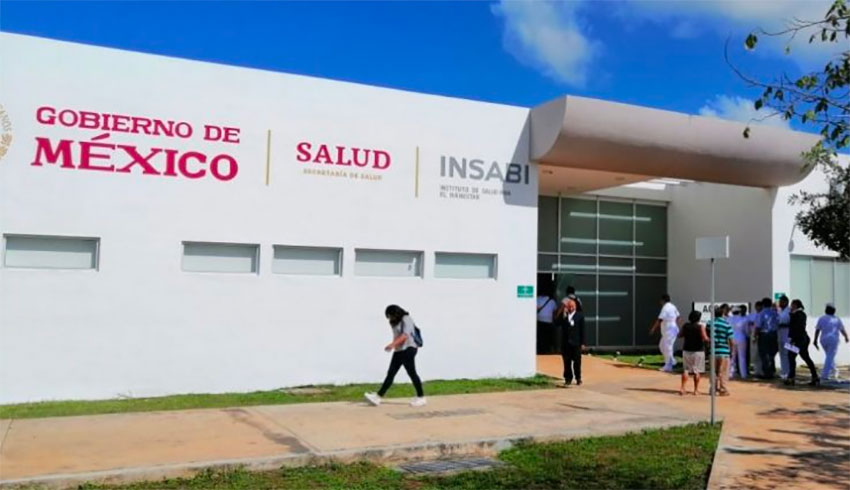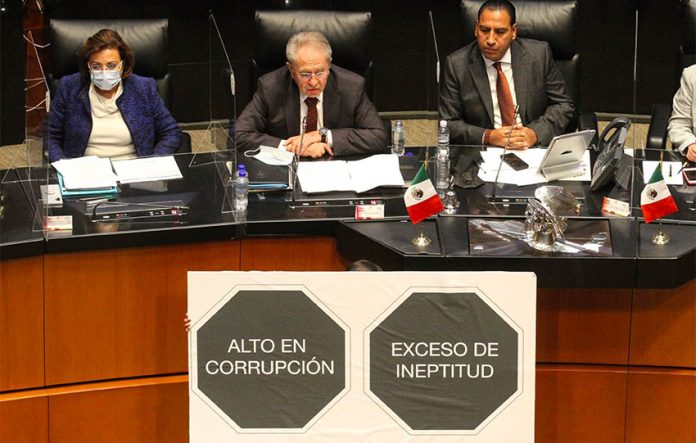Medications and medical care at all public healthcare facilities including specialty hospitals will be free effective December 1, Health Minister Jorge Alcocer said Wednesday.
Speaking in the Senate, Alcocer said the government was complying with its commitment to make specialty health care free as of that date.
“We’re working so that it happens on that date or before if possible,” he said.
The government launched a new universal healthcare scheme known as Insabi in January but to date it has only provided free services at primary and secondary health care facilities, not tertiary level ones such as national health institutes and other highly-specialized hospitals.
Patients who qualify for the Insabi scheme and their family members have complained that they have had to purchase medications when hospitals should have provided them free of charge. Alcocer ensured that will no longer be the case by December 1.
The health minister acknowledged that providing free medical services at all levels of care will be expensive but stressed that the government sees spending in the health sector as an investment rather than a burden.
He said the government’s central aim is to reduce healthcare inequality by ensuring that all people without health insurance such as that provided by the Mexican Social Security Institute and the State Workers Social Security Institute can access free of charge all the medical services and medications they require.
Earlier in his Senate appearance, Alcocer defended the government’s response to the coronavirus pandemic in the face of harsh criticism and difficult questions from opposition party senators.
“The government response … has focused on saving lives,” he said, highlighting the various measures that were implemented to slow the spread of the coronavirus.
Alcocer said that the government’s pandemic response has avoided a “collapse” of the health system and has taken people’s rights and dignity into account. (Unlike many countries in the region, a hard lockdown was never enforced in Mexico.)
The health minister said the government inherited a health system with incomplete infrastructure and a shortage of more than 200,000 workers but nevertheless quickly prepared it to receive an influx of coronavirus patients. In a few short months, 969 public hospitals were equipped to treat Covid patients, Alcocer said.

An analysis published by Amnesty International at the start of September said that more health workers have died in Mexico after contracting Covid-19 than in any other country but the health minister rejected that was the case.
Citing per capita figures rather than sheer numbers, Alcocer said that Mexico ranked 12th for Covid-19 deaths among health workers, not first.
He asserted that new coronavirus case numbers have been on the wane for nine weeks and highlighted that half of the country’s 32 states are close to green light status according to the federal government’s stoplight system to assess the risk of infection.
(Sixteen states are currently considered yellow light “medium risk,” 15 are orange light “high risk” and one – Campeche – is green light “low risk.”)
During Alcocer’s appearance in the upper house, National Action Party Senator Alejandra Reynosa said that the government’s response to the coronavirus crisis constituted a “crime” given that so many people have lost their lives.
She asserted that the death toll is undoubtedly much higher than the official number, which as of Wednesday was 77,646.
Sylvana Beltrones of the Institutional Revolutionary Party asked Alcocer what it would take for the government to reconsider its strategy and undertake a widespread Covid-19 testing campaign. Would a death of toll 80,000 convince the government that its strategy is not working, she probed.
Verónica Delgadillo of the Citizens Movement party asked Alcocer how many more people would have to die before he and Deputy Health Minister Hugo López-Gatell, Mexico’s coronavirus czar, would resign.
She asked him why he had permitted “the errors and negligence” of López-Gatell and inquired: “Aren’t you ashamed to know Mexico has the highest mortality rate in the world?”
Acocer responded correctly that according to data compiled by Johns Hopkins University, Mexico in fact has the 12th highest mortality rate (deaths per capita) in the world, although if the micro-states of San Marino and Andorra are excluded it ranks 10th.
Source: El Universal (sp), La Jornada (sp)
